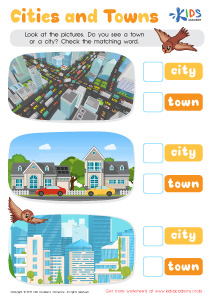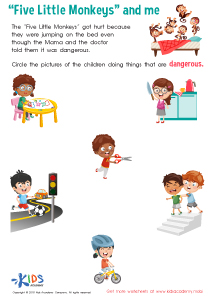Following instructions Easy Reading Worksheets for Ages 5-6
7 filtered results
-
From - To
Discover our engaging "Following Instructions Easy Reading Worksheets for Ages 5-6", designed to enhance children's listening and comprehension skills. These worksheets provide fun, age-appropriate activities that teach young learners to follow simple instructions through vibrant illustrations and interactive tasks. Perfect for kindergarten and early elementary students, our worksheets are tailored to build a strong foundation in reading and understanding prompts. They are carefully crafted to make learning an enjoyable experience while promoting critical thinking and ability to follow directions. Equip your child with essential skills for academic success and daily life with Kids Academy’s easy reading worksheets!
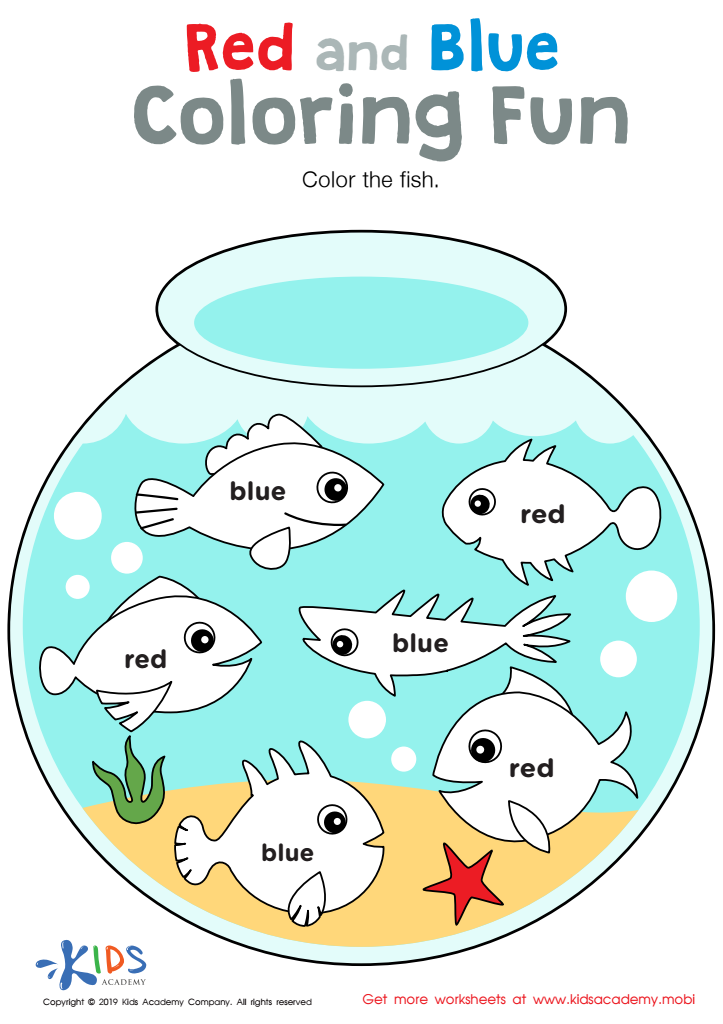

Red and Blue Coloring Fun Worksheet


Yellow and Green Coloring Fun Worksheet
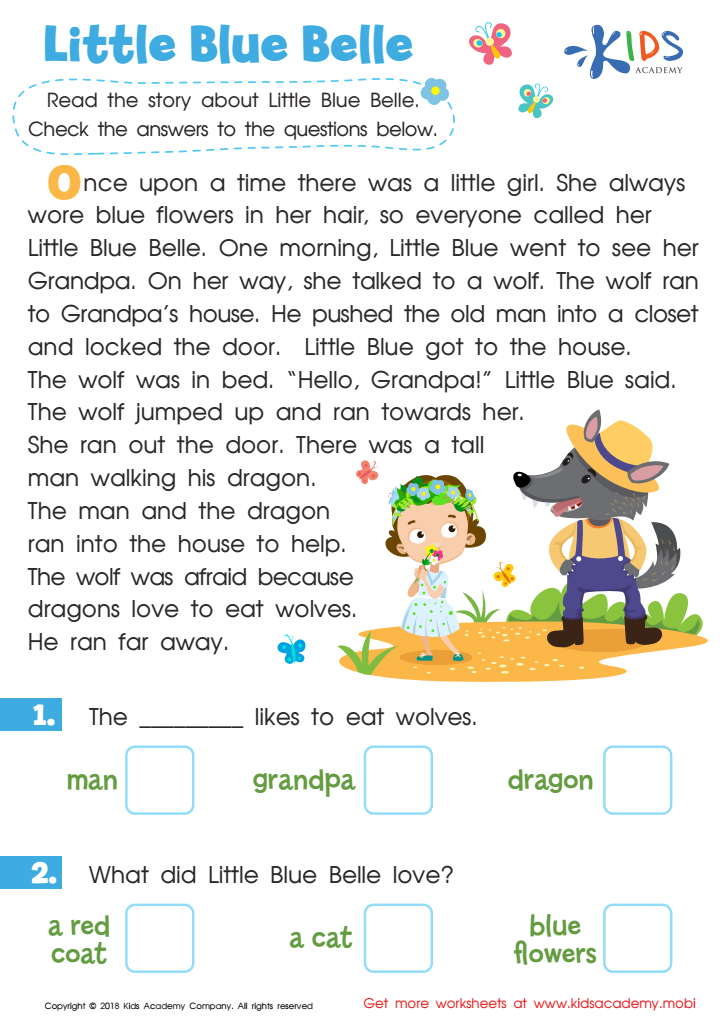

Little Blue Belle Worksheet


The Five Little Monkeys Nursery Rhyme Worksheet
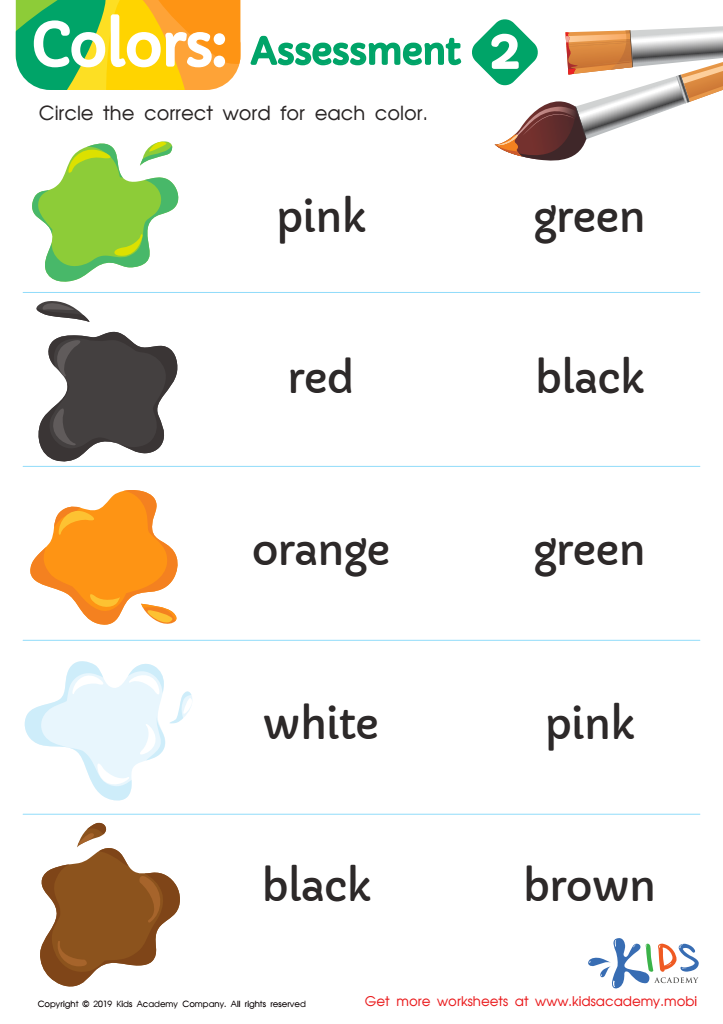

Colors: Assessment 2 Worksheet
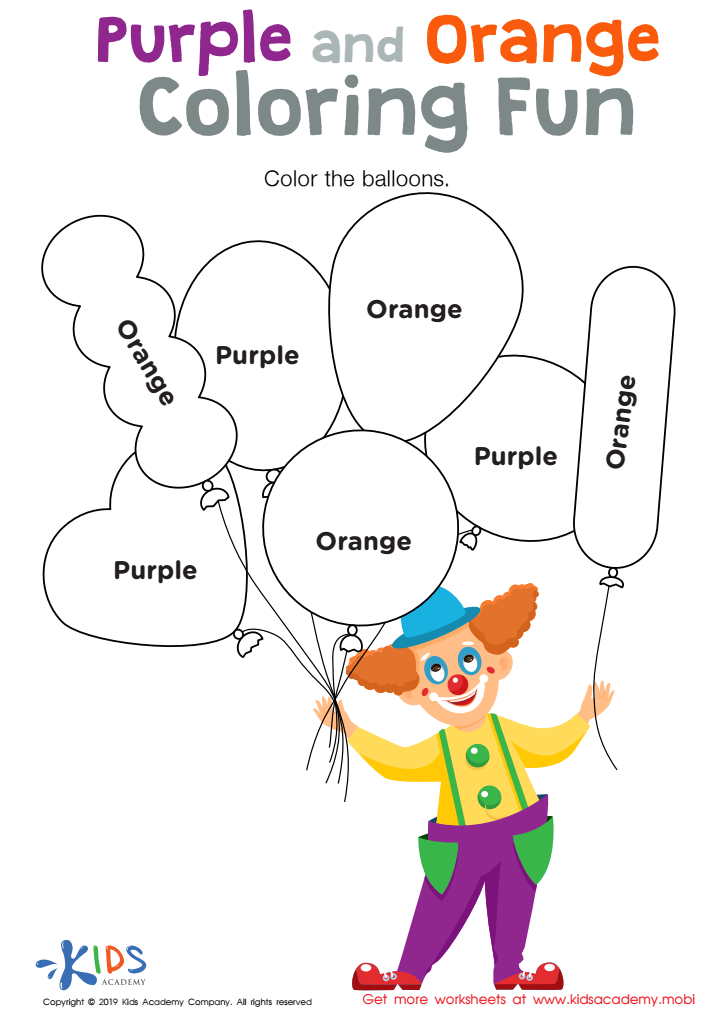

Purple and Orange Coloring Fun Worksheet
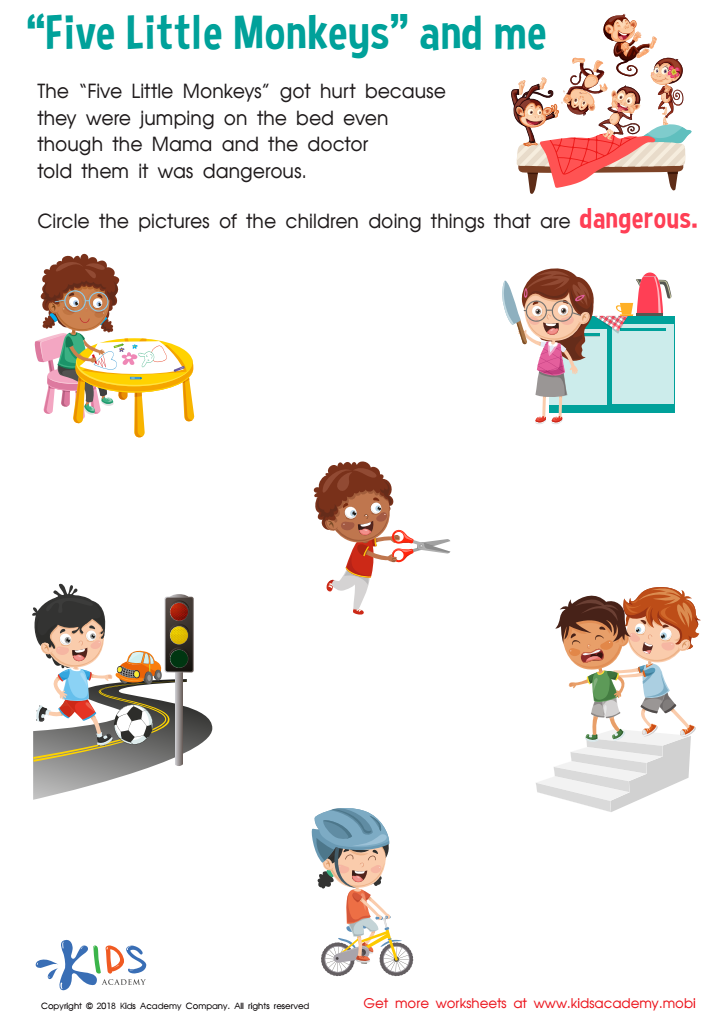

Five Little Monkeys and Me Worksheet
Following instructions is a crucial skill for young children, especially those aged 5-6, as it lays a strong foundation for their academic and social development. At this stage, kids are beginning to learn how to listen, comprehend, and execute tasks, which are core elements of both learning and everyday life. When children are exposed to easy reading that focuses on following instructions, they improve their ability to understand and process information. This fosters better classroom behavior as they learn to pay attention and respond to their teacher's directions, creating a more harmonious learning environment.
Moreover, following instructions helps children develop critical cognitive skills such as memory, attention, and sequencing. These are essential for problem-solving and adapting to new situations. For example, simple tasks like following a recipe or assembling a toy improve their ability to read, comprehend, and execute steps in a logical order. This also boosts their confidence and independence, encouraging them to tackle more complex tasks.
In social settings, the ability to follow instructions ensures that kids can play cooperatively with their peers, sharing and taking turns as required. By mastering this skill early on, children are better prepared for future academic challenges and social interactions, making it an indispensable part of early education.

 Assign to My Students
Assign to My Students










